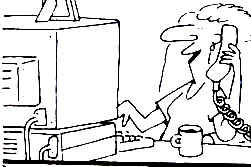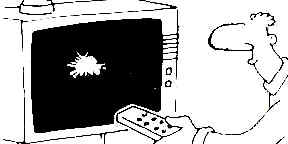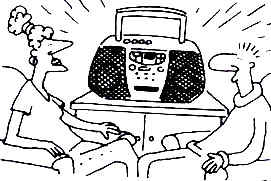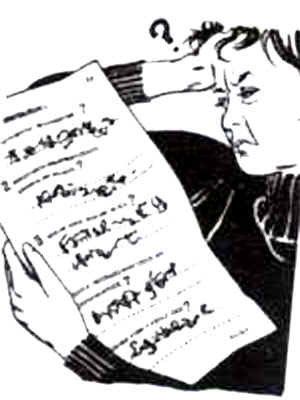- Преподавателю
- Иностранные языки
- Урок по английскому языку по теме «СМИ»
Урок по английскому языку по теме «СМИ»
| Раздел | Иностранные языки |
| Класс | - |
| Тип | Конспекты |
| Автор | Самышкина Е.А. |
| Дата | 31.03.2014 |
| Формат | doc |
| Изображения | Есть |
Урок для 8 класса по теме «Средства массовой информации», учебник Биболетова М.З.
We and Mass Media
Образовательная цель: формирование речевых умений вести обсуждения в рамках темы; тренировка навыков и умений диалоговой речи; закрепление грамматических навыков по теме: «Неисчисляемые существительные».
Воспитательная цель: воспитание уважения к партнеру по общению.
Развивающая цель: развитие информационно-коммуникативной компетенции; развитие способности целенаправленно, логично и связно излагать содержание речевого высказывания, развитие культуры речи.
Оборудование: УМК 8кл., раздаточный материал, презентация.
Ход урока:
Вводная часть. Фонетическая разминка:
-Good morning, children. How are you? Did you watch TV yesterday, Dasha? What did you watch? Do you like this film, Irina? Why not? What do you prefer, Sasha, radio or TV?..
-Good. Children, today we continue speaking about countable and uncountable nouns. Let us remember, the rule: WHAT DO WE CALL UNCOUNTABLE NOUNS?
(Ns can be count and uncount. Uncountable ns are ns that we cannot count. They have no plural, they have only 1 form):
е.g. …
-Is an indefinite article is used with such nouns?
-No. A/ an is not used with uncountable nouns.
-Good. What groups of uncount. ns do you know?
-Uncount. ns unclude:
food ( sugar, milk, water…)
material (paper, wood, silver, gold…)
abstract ns (peace, anger, love)
many others…
-O'k, right you are. We may find uncountable ns in many spheres. For example in professional lexicology in mass media. What are these nouns? Can you give me examples? (info, TV, music, news, radio…)
-O'k. Very good. Your home-task was to read the text about newspapers and to write down all the nouns and to divide them into 2 columns:
Why Do We Read Newspapers?
I started reading a newspaper when I was I think in my early childhood. Earlier it was more aimed towards getting away from homework( :p ) for 30 minutes or so while I spent some time pretending reading the sports section and cartoons. Obviously, no sensible parents would object to their kids reading newspapers! Later, I went into reading the editorials and other feature articles. And currently it has reached a stage, I can spend hours reading just newspapers alone.
And this is when I spend around 40% of the TV time watching news and I have got a 24×7 internet connectivity. I spend considerable time checking out Google News. As a result, most of the times I already know all the news that they can possibly put up in the morning newspapers by the time it is delivered at my place.
Even with this overflow of information, I just cannot miss reading the morning newspaper. I just wait for dad to complete the main pages so that I can get my cup of tea with it. I do not know why I do that, but that is what happens everyday at my place. If someday, I don't get time to do that… there is always this strange feeling that I missed on an important daily routine task…
countable nouns
uncountable nouns
a newspaper
information
a task
news
a feeling
time
a minute
internet
a section
connectivity
a cartoon
tea
a kid
childhood
a parent
homework
a stage
an editorial
an article
an overflow
a page
an hour
a place
- Good. You can check your work … ( на слайде текст с выделенными существительными, разделенными на 2 группы). Have you made any mistakes? When reading the text, you came across certain ws that are used with uncountable nouns instead of articles. What are these ws?
-Some, any, much, little.
-Very good. The words some/any have different shades of meaning, what are they?
-Some is used in positive sentences, any - in - /?
-Yes, you are quite right. But you should also know that some is used in such questions, when you ask for or suggest smth., for example: Would you like some tea, please? Let's practice this rule and fill in the gaps with some/any:
1. - What are doing?
- I'm looking for some information for my school report.
- Oh, I see. Do you need any help?
- Yes, please, I need find any information about the role of the radio in our life.
- O'k, no problem.
- Would you like some tea, while working?
- No, thanks. Could I have some please?
- Of course, here it is.
- Thank you. I've found some information about the history of the radio.
-Thank you very much.
2. - Hi, how are you?
- I'm fine, thanks. Would you like a glass of juice and some ice- cream?
- No, thank you. I've got some homework to do. I don't have any time.
- Oh, that's a pity. I thought you would spent some time with me.
-I would like to, but I'm busy. Could you help me please?
-Yes, of course.
- Listen to the radio, please. There will be some news about the weather soon and then tell me everything.
- No problem. Why do you need this information?
- I need any information about the weather because I need to prepare a report about weather forecasts.
3. - Good morning. I'm glad to see you. I have some important information for you.
-Yea, please, I'm ready.
- You should write an article about the influence of the Internet on people.
-But where can I find any information?
-I can give you some advice. Start asking people in the street.
- How much time do I have?
- You have some time, so don't be in a hurry.
- As for me, I can live without the Internet and spend just some time in front of the computer.
- You can write about this in your article. But also gather some information from other people.
- O'k.
-O'k. It was good. Let's read these dialogues and act them out…( читают по ролям).
-Now it's your turn to make your own dialogues. Your tasks are: to make up dialogues concerning the media; to use as many uncount ns with some/any as possible…But before it let's remember once again when do we use some/any? (дать 3 ситуации)(роль интернета в жизни людей, роль радио, роль телевидения).
-O'k, thank you. You can't deny the fact that mass media plays a great role in our life. Some people adore TV and the internet, others like newspapers, books. Is it good or bad spend a lot of time in front of the TV?..
-Look at these pictures. Comment on them, using the ws in brackets, but before it look at these ws, finds all the nouns and say which of them are countable and uncountable:
(to spend up to 10 hours a day on the Internet; to be addicted; to visit different sites; to be glued to the screen, to get some information)

(to switch to another channel; a TV-addict; to relax after a hard day's work; to watch news, sport programs, talk shows, TV games, documentaries, feature films, etc.; not to give up TV for anything in the world)

(to listen to the radio; loud music; the latest news; some useful and interesting information)

(to be full of gossip; any background information; articles about natural disasters, plane crashes, murders and robberies;much unreliable information; to feel depressed)

-Very good. Do you often find yourselves in such situations? Tell me, what of these things you do. Explain why:
1. I read a lot of newspapers and magazines.
2. I watch TV for many hours a week.
3. I'm fond of listening to music on the radio.
4. I can't live without the internet and spend much time in front of the computer.
5. I prefer spending my free time outdoors in the open air … than watching TV…
6. …
-O'k. So today we've spoken a lot about the m.m. and your attitude towards it. Now you have a fantastic opportunity to speak to the general director of ORT Konstsantin Ernst about the today mass media. You may express your attitude or say what you would like to change in TV or to thank him if you are pleased with everything:
P1 P3 …
P2 P4 …
-
Very good. I' very pleased with your work today. I'm glad that you have used uncount. ns in your speech. Let's make a conclusion:what have we done today? What have you learnt?
-
Thank you. Your marks are …
-
Your home task is ex. 13, 14, 15 p.87.


